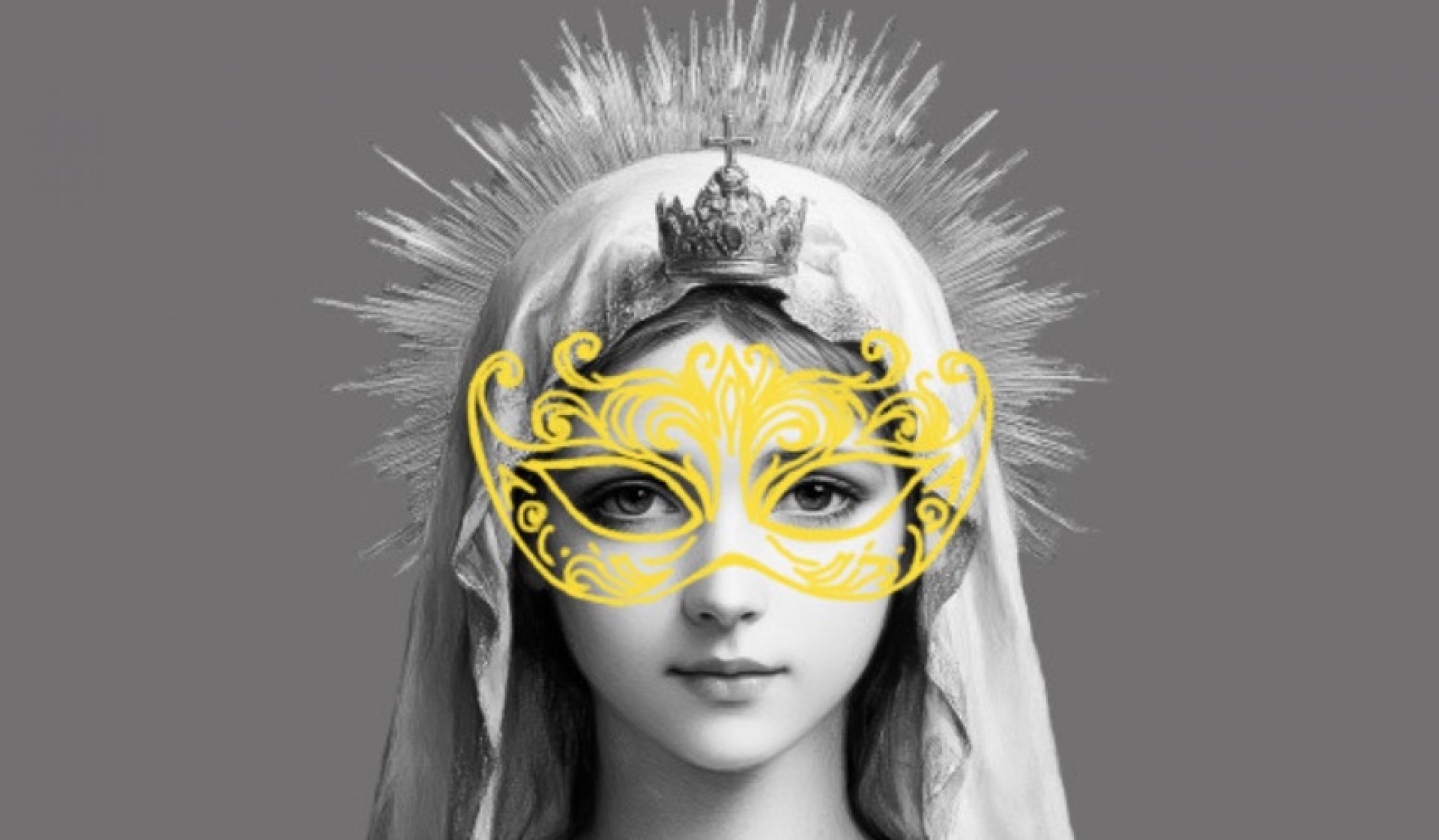Violanta
Mo | Tu | We | Th | Fr | Sa | Su |
Violanta - Erich Wolfgang Korngold [1897 – 1957]
Opera in one act
after a libretto by Hans Müller-Einigen
First performed on 28 March 1916 at the Hoftheater Munich
Premiere at the Deutsche Oper Berlin on 25 January 2026
1 h 20 mins / no interval
In German with German and English surtitles
45 minutes before beginning: Introduction (in German language)
About the performance
With the world premiere of his one-act opera, VIOLANTA, the 18-year-old Erich Wolfgang Korngold shifted overnight from child prodigy to one of the leading opera composers of his generation. For VIOLANTA not only heralded the arrival of a young maestro who was as independent as he was variegated in his musical palette, who had an unerring feel for how to render his vision on stage, and who could write melodies that were both expressive and catchy to boot; the 75-minute work to a libretto by Hans Müller, later to be known for co-writing THE WHITE HORSE INN, also served notice that Korngold had caught a contemporary Viennese mood that encapsulated Art Nouveau, psychoanalysis and an end-of-days atmosphere, a quintessence framed by Freud, Klimt and Schnitzler – all mirrored perfectly in the storyline: Violanta, the wife of Venice’s governor, plots during Carnival to avenge, through assassination, her sister, who committed suicide after being seduced by Prince Alfonso. When the moment comes, however, she acknowledges her true motive: to snuff out her own desire to abandon herself to passion. She sacrifices herself to free herself from “lust and guilt”.
At the Deutsche Oper Berlin, which hosted a much-discussed revival of THE MIRACLE OF HELIANE (likewise to a text by Hans Müller), this new production of VIOLANTA is the result of a collaboration between General Music Director Sir Donald Runnicles and the director David Hermann. The pair have already worked on two other new productions: THE MAKROPULOS AFFAIR and FIDELIO.
Synopsis
The opera is set in 15th-century Venice, at the house of Simone Trovai, military commander of the Venetian Republic.
On the night of the great Carnival, Simone in vain searches his house for his wife Violanta. Ever since her sister Nerina committed suicide (after having been seduced by Alfonso, the Prince of Naples), she has been bent on vengeance. Simone is about to leave for the Carnival with the painter Giovanni Bracca, when Violanta appears. After dismissing Bracca, she reveals to Simone that she has (anonymously) arranged a meeting with Alfonso in their house, where she wants her husband to murder him. Initially Simone is horrified at this plan, but he finally succumbs to Violanta's promises and threats. The plan is that Violanta will receive Alfonso in her room, and once he is disarmed she will sing the Carnival song as a signal that Simone should enter and murder him.
Alfonso arrives. During their meeting Violanta reveals her true identity and her intention to avenge her sister. However, when Alfonso explains to her the course of his life and talks about his longing for death, Violanta realises that she really loves him and refuses to give the signal. Violanta bemoans her fate, but Alfonso implores her to think only of the present moment: they embrace and sing of the sublimity of pure love.
Their ecstatic bliss is interrupted by Simone who calls out to his wife. The lovers realise that their dream is over, and spurred on by Alfonso Violanta sings the fateful song with hysterical abandon. Simone enters and tries to stab Alfonso, but Violanta interposes herself and is mortally wounded. She dies in Simone's arms.
Program and cast
Conductor: Sir Donald Runnicles
Director: David Hermann
Stage design, Video: Jo Schramm
Costume design: Sybilla Wallum
Light design: Ulrich Niepel
Dramaturgy: Jörg Königsdorf
Chorus master: Jeremy Bines
Simone Trovai, Captain of the Republic of Venice: Ólafur Sigurdarson
Violanta, his wife: Laura Wilde
Alfonso, son of the King of Naples: Mihails Culpajevs
Giovanni Bracca, painter: Kangyoon Shine Lee
Bice, Violanta's chambermaid: Lilit Davtyan
Barbara, Violanta's nanny: Stephanie Wake-Edwards
Matteo: Andrei Danilov
First maid: Maria Vasilevskaya
Second maid: Lucy Baker
First soldier: Michael Dimovski
Second soldier: Paul Minhyung Roh
Chorus: Chor der Deutschen Oper Berlin
Orchestra: Orchester der Deutschen Oper Berlin
Deutsche Oper Berlin
The Deutsche Oper Berlin is an opera company located in the Charlottenburg district of Berlin, Germany. The resident building is the country's second largest opera house and also home to the Berlin State Ballet.
The company's history goes back to the Deutsches Opernhaus built by the then independent city of Charlottenburg—the "richest town of Prussia"—according to plans designed by Heinrich Seeling from 1911. It opened on November 7, 1912 with a performance of Beethoven's Fidelio, conducted by Ignatz Waghalter. After the incorporation of Charlottenburg by the 1920 Greater Berlin Act, the name of the resident building was changed to Städtische Oper (Municipal Opera) in 1925.
Deutsches Opernhaus, 1912
With the Nazi Machtergreifung in 1933, the opera was under control of the Reich Ministry of Public Enlightenment and Propaganda. Minister Joseph Goebbels had the name changed back to Deutsches Opernhaus, competing with the Berlin State Opera in Mitte controlled by his rival, the Prussian minister-president Hermann Göring. In 1935, the building was remodeled by Paul Baumgarten and the seating reduced from 2300 to 2098. Carl Ebert, the pre-World War II general manager, chose to emigrate from Germany rather than endorse the Nazi view of music, and went on to co-found the Glyndebourne opera festival in England. He was replaced by Max von Schillings, who acceded to enact works of "unalloyed German character". Several artists, like the conductor Fritz Stiedry or the singer Alexander Kipnis followed Ebert into emigration. The opera house was destroyed by a RAF air raid on 23 November 1943. Performances continued at the Admiralspalast in Mitte until 1945. Ebert returned as general manager after the war.
After the war, the company in what was now West Berlin used the nearby building of the Theater des Westens until the opera house was rebuilt. The sober design by Fritz Bornemann was completed on 24 September 1961. The opening production was Mozart's Don Giovanni. The new building opened with the current name.

 EN
EN DE
DE IT
IT FR
FR ES
ES RU
RU JP
JP RO
RO
 Seating plan
Seating plan 